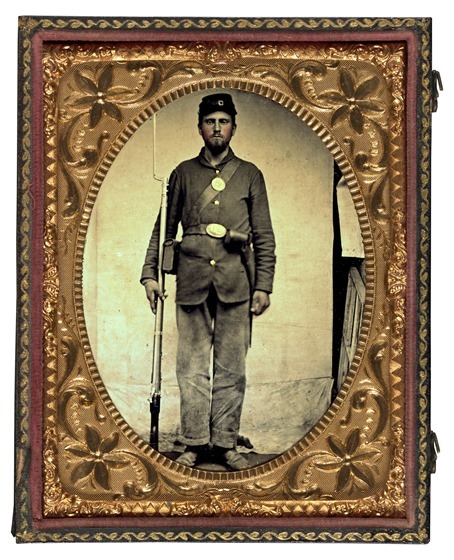Sunday, 16th.
Coming out of church this morning with Miriam, a young lady ran up with an important air, as though about to create a sensation. “I have a message for you both,” she said, fixing her eyes on mine as though she sought something in them. “I visit the prisoners frequently, you know, and day before yesterday Captain Steadman requested me to beg you to call, that he will not take a refusal, but entreated you to come, if it were only once.” The fates must be against me; I had almost forgotten his existence, and having received the same message frequently from another, I thoughtlessly said, “You mean Colonel, do you not?” Fortunately Miriam asked the same question at the instant that I was beginning to believe I had done something very foolish. The lady looked at me with her calm, scrutinizing, disagreeable smile — a smile that had all the unpleasant insinuations eyes and lips can convey, a smile that looked like “I have your secret —you can’t deceive me” — and said with her piercing gaze, “ No, not the Colonel. He was very ill that day (did you know it?) and could not see us. This was really the Captain.” “He is very kind,” I stammered, and suggested to Miriam that we had better pass on. The lady was still eyeing me inquisitively. Decidedly, this is unpleasant to have the reputation of being engaged to a man that every girl is crazy to win! If one only cared for him, it would not be so unpleasant; but under the circumstances, — ah ça! why don’t they make him over to the young lady whose father openly avows he would be charmed to have him for a son-in-law? This report has cost me more than one impertinent stare. The young ladies think it a very enviable position. Let some of them usurp it, then!
So the young lady, not having finished her examination, proposed to accompany us part of the way. As a recompense, we were regaled with charming little anecdotes about herself, and her visits. How she had sent a delightful little custard to the Colonel (here was a side glance at my demure face) and had carried an autographic album in her last visit, and had insisted on their inscribing their names, and writing a verse or so. “How interesting!” was my mental comment. “Can a man respect a woman who thrusts him her album, begging for a compliment the first time they meet? What fools they must think us, if they take such as these for specimens of the genus!”
Did we know Captain Lanier? Know him, no! but how vividly his face comes before me when I look back to that grand smash-up at Port Hudson, when his face was the last I saw before being thrown, and the first I recognized when I roused myself from my stupor and found myself in the arms of the young Alabamian. At the sound of his name, I fairly saw the last ray of sunset flashing over his handsome face, as I saw it then. No, I did not know him. He had spoken to me, begging to be allowed to hold me, and I had answered, entreating him not to touch me, and that was all I knew of him; but she did not wait for the reply. She hurried on to say that she had sent him a bouquet, with a piece of poetry, and that he had been heard to exclaim, “How beautiful!” on reading it. “And do you know,” she continued, with an air that was meant to be charmingly naïf, but which was not very successful, as naiveté at twenty-nine is rather flat, “I am so much afraid he thinks it original! I forgot to put quotation marks, and it would be so funny in him to make the mistake! For you know I have not much of the —of that sort of thing about me — I am not a poet —poetess, author, you know.” Said Miriam in her blandest tone, without a touch of sarcasm in her voice, “Oh, if he has ever seen you, the mistake is natural!” If I had spoken, my voice would have carried a sting in it. So I waited until I could calmly say, “You know him well, of course.” “No, I never saw him before!” she answered with a new outburst of naiveté.












